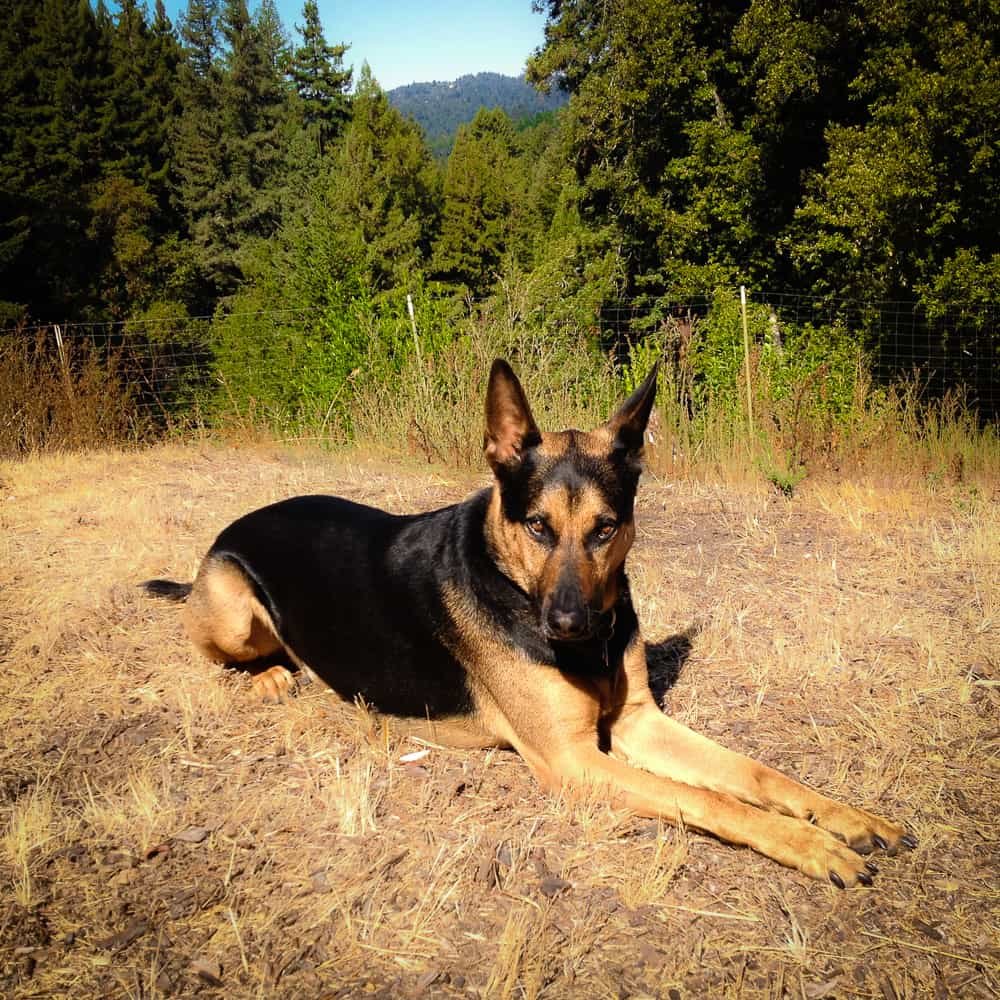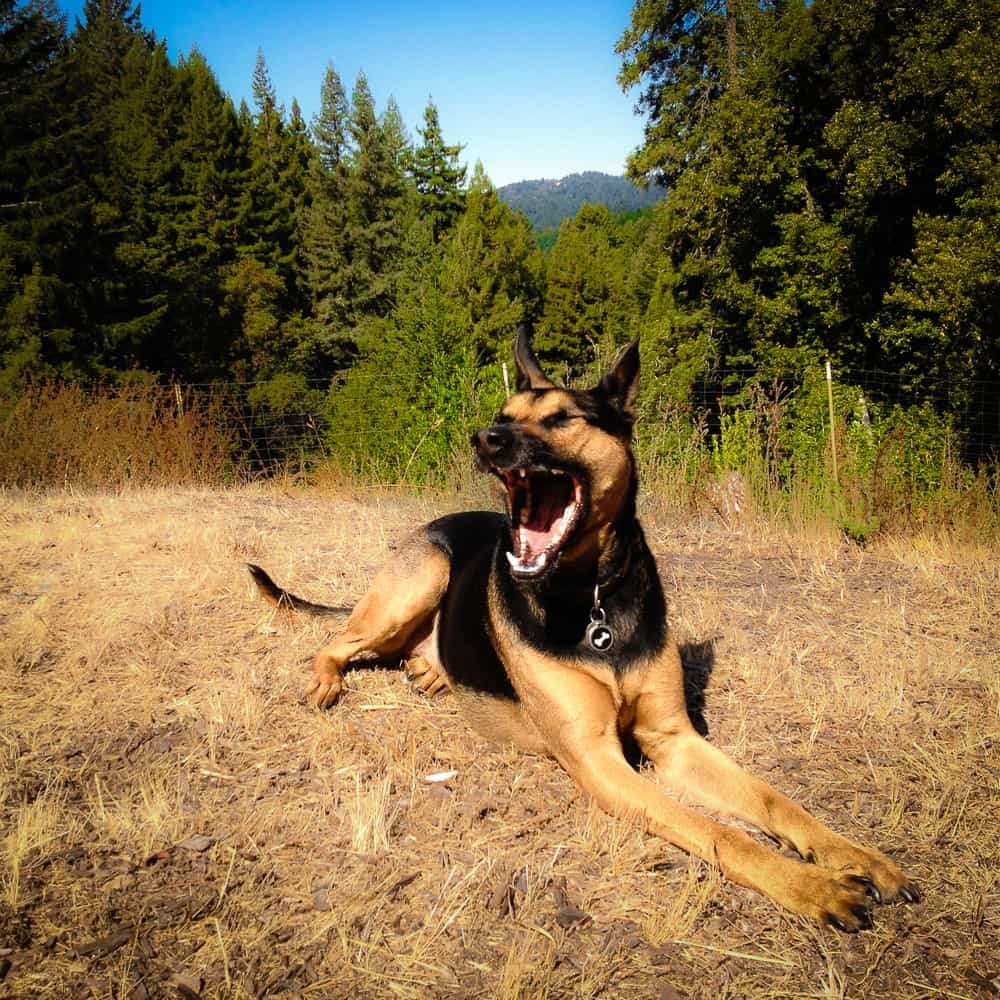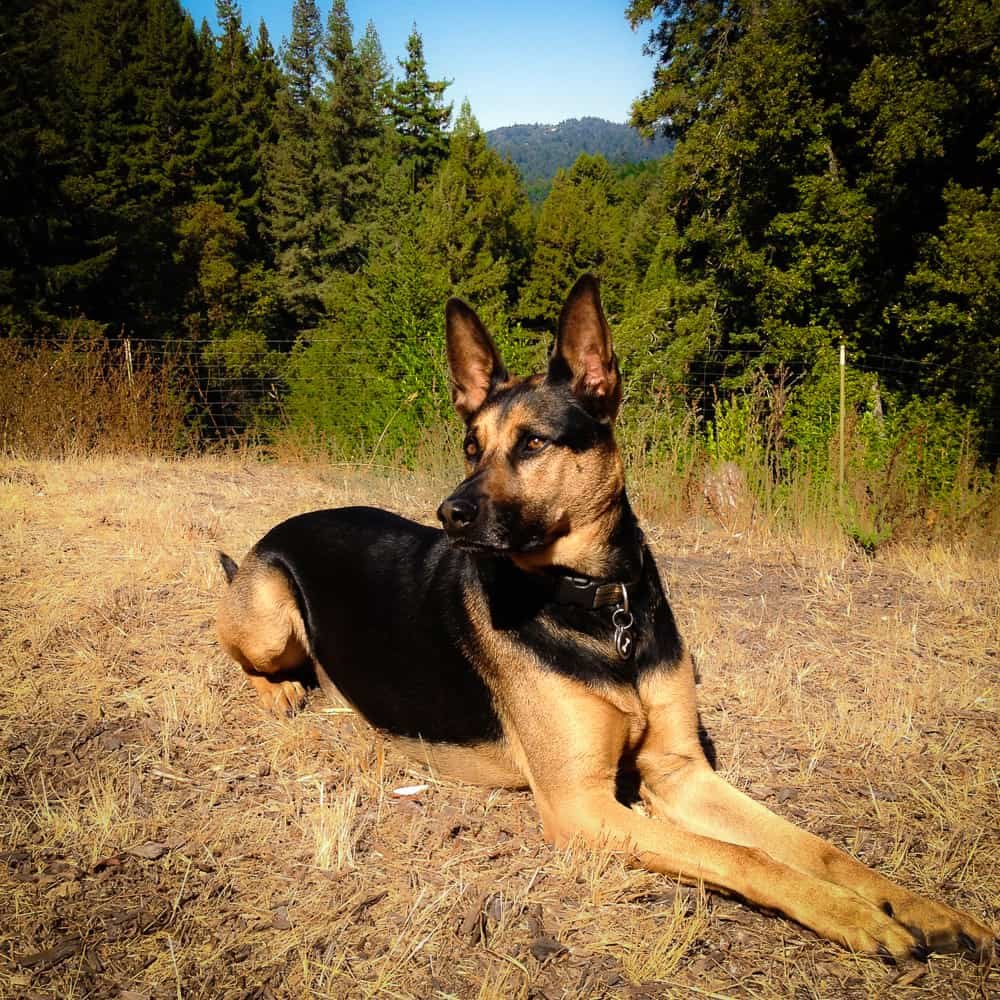"Essscusuuuzzze me? What exactly did my pal Jim say about me?"
A few weeks ago, we ran into one of Loki's biggest fans Jim, not once, but twice in one weekend. Jim was one of the first people who not only didn't shriek or flee when he first met the cracker, but laughed and delighted in his energy and nuttiness. Jim's 4 huskies clicked well with Loki and they often met for play dates those early years. In fact, Jim is the person solely responsible for me harboring a criminal of my own now. But this post is about Loki, so I digress.
The first time I ran into him that weekend, I didn't have the dogs with me and Jim was bummin' not to have had the chance to say hello to Loki. "Boy he was some hero with saving your house from burning down," said Jim. As we reminisced over all of Loki's crackery, intensity and edginess, Jim just smiled and said "He's such a mess," he laughed, "but he's the best kind of mess!"
I knew exactly what he meant. Loki has a good heart with good intentions. But sometimes his intentions were a bit exaggerated---to the power of 100. And handling a dog like that in the real world, with no past experience, made me just as nutters as my dog. An edgy dog with and edgy handler. The truth is, we were both a kind of a mess. Thankfully, I met people like Jim, who knew Loki for who he was, and educated me along the way.
"I don't believe Jim said that about his favorite non-husky! He'd better have meant that as a compliment!"
While Loki's quite affectionate with most people, especially dog lovers, it took me a very long time to understand just what it meant to handle a dog with a high protection drives and how to properly socialize him. I recently read this article that casually mentioned the brain of a guard dog, and how important it was to maintain consistency for their environment--exposing them to what is normal and what is 'out of the ordinary' so they can do their jobs correctly. Dogs bred to guard are wired to constantly assess their environment for anything out of place or abnormal. Yet, early dog trainers had me constantly correcting him for every little bark, every single alert, whether it was justified or not. It never felt quite right constantly correcting a dog who was simply either not adjusted to the environment or wasn't exactly wrong to be alerting. Not to mention, constantly correcting him only made him more nervous around those things that worried him.
Just before we moved to Switzerland I had the fortunate opportunity to train with one of the best ring sport trainers in our country, Denise Fenzi. Of the few hand full of sessions we had, I learned so much, which led to a much better handling system for Loki's natural motivation to protect.
One day on the field while we were working off leash, Loki spotted a woman crouched in the field behind a four-foot fence, watching us. He broke out of our working mode and ran to the fence, barking in full defense mode, at the crouching individual. I was paralyzed. Loki could easily jump the tiny fence. Denise was very calm and told her friend who'd been watching us train to simply stand up. Then she told me to call my dog. Loki returned to me but stayed on alert for a few seconds. We did a few things to release his tension and went right back to work. When I asked why we didn't correct him for that behavior, she simply said, "Why? A crouching person is suspicious. He did what a dog with his drive would normally do for something that looked suspicious."
That seemingly insignificant lesson (after all, we were actually working on ring sport behaviors) taught me so much about how Loki's brain was wired and how I was to handle him from that day on. I didn't need escalating corrections. I needed to acknowledge his alert, asses whether it was justified or not, praise him if it was and condition him to relax and ignore it if it wasn't, so that his alerts become more specific and accurate. No trainer actually "told" me this in so many words. Up until then, I had only ever heard "correct the dog for barking."
And you know what? It worked. Five years ago, he'd bark his fool head off at anyone on a hiking trail, running, riding a bike, pushing a stroller or dragging a piece of luggage. Since that day on the field with Denise, I've never corrected him, and instead focused on changing his emotional state of mind. In other words, I spoke softly and carried a lot of treats. And it worked. Today he's a solid trail dog, calm around riders, hikers and even horseback riders. He's still excited when he sees other big dogs on the trails, but he can hold himself together enough to make our trail adventures enjoyable. And while his alerts now are more often quite justified (alerting to our house fire was just one of many accurate alerts), he's also calmer about turning them off if they're not justified.
Handling a dog like this requires so much more than teaching behaviors and forcing the dog to to them under any circumstance. It's about looking at the entire dog, his motivations, genetic drives, ability to generalize and emotional state. Teaching Loki to be calm in various environments was exactly what he needed, and why I never really pursued ring sports with him. I could train his "behaviors" all day long (he's an easy dog to train) but at the end of the day, he wouldn't be capable of doing any of them if his emotional state was chock full of crackery. I know he would love to do a real sport suited for his specific drives and while the time may finally be right for him emotionally to start back to training, the timing isn't so great for me. But we'll get there.
It is only when I lose contact with the painting that the result is a mess. Otherwise there is pure harmony, an easy give and take, and the painting comes out well."
~ Jackson Pollock
Dogs are art. Pure harmony if you look at the whole picture. I still keep the treat jar loaded by the front door and guests are always tickled to see him go from "Intruder alert!" to "Nom-nom-nom! Oh, Hello nice person!" In a perfect world, he wouldn't need that. We're both far from perfect. It comes with the territory of having an edgy, protective dog. At least we're both less of a mess of when we started this journey. In fact, we're the best kind of mess!



What a beautiful boy that cracker is. You've learned so much from each other!
PeeeeS: Sending POTP to YOU, Mrs. WD. Feel better.
What a great post. Loki is definitely in the right home! 🙂
KZK
Thanks for the post. Our Morgan has been very, well, Morgan lately.
I love this post for so many reasons!
Beautiful post. I can relate to so much of it! Until you live with a dog like the cracker (or Wild Phoenix), it's really hard to understand how critical it is to look at the "whole" dog in terms of training or just getting through daily life.
re Juno... it's not my fault 😉
hello loki its dennis the vizsla dog hay its okay peepul dont unnerstand that hero dogs arnt like other peepul!!! or other dogs!!! sayving the wurld frum ninja hedjhogs and stopping howses frum burning down reekwires konstant vidjilanse and not evrywun is up to the task!!! ok bye
AMEN!! I relate with my McIver. He is an utter mess but an amazing mess. He's almost 5 now and really coming into his own about his emotions and how to control his urges to cracker out! But there isn't a better dog around- I can promise that!
mamma heartbeat
Hi Loki's mom,
I've been following your blog caz I'm a Formosan lover. Some of your posts just brings tears to my eyes. We had a smaller version of Formosan growing up who was considered as my younger brother. He lived to be 15 and I still miss him all the time. I would love to have one around again. They are so smart and loving. Loki is so lucky to have you as a mom.